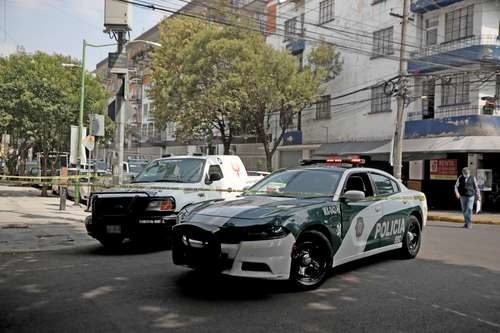Mexico City. After having reached its lowest level in December since the National Urban Public Safety Survey (ENSU) was carried out in more than a decade, the perception of insecurity of the population aged 18 and over, residing in 90 cities in Mexico, rebounded in March 2024, revealed the National Institute of Statistics and Geography (Inegi).
Nationally, six out of 10 people (61 percent of the population) considered it unsafe to live in their city. The above, stated the Inegi, represented a statistically significant change in relation to the percentages of December 2023 and March 2023 (59.1 and 62.1 percent, respectively).
Likewise, the perception of insecurity interrupted two readings of consecutive declines (September 2023, 61.4 percent and December 2023, 59.1 percent). Meanwhile, by gender, there was also an increase in the perception of insecurity, since 66.5 percent of women and 54.5 percent of men considered that it is unsafe to live in their city. Last December the levels were 64.8 and 52.3 percent, in that order.
In this edition, at the end of March of this year, 18 cities and districts had statistically significant changes compared to December 2023: four presented reductions and 14 increases, Inegi stated.
In March 2024, the cities with the highest percentage of the population aged 18 and over who considered it unsafe to live in their city were: Fresnillo (95.4 percent); Naucalpan de Juárez (89.6 percent); Zacatecas (89.3), Chilpancingo (87.3); Cuernavaca (87) and Ciudad Obregón (86.6 percent).
In contrast, the cities where the perception of insecurity was lower were Benito Juárez (11.1 percent); Piedras Negras (19 percent); Cuajimalpa de Morelos (22.5); Merida (23.2); Tampico (23.6) and Los Cabos (24.8 percent).
Modify habits
Regarding the perception of insecurity in specific physical spaces, in March 2024, 69.4 percent of the population expressed feeling unsafe at ATMs located on public roads; 63.9 in public transport; 53.9 on the road and 53.5 on the bench.
Almost half of the population (47.4 percent) of the population aged 18 years and over, residing in the cities under study, stated that they changed their habits regarding carrying valuable things, such as jewelry, money or credit cards, due to fear of suffering a crime. In addition, 40.8 percent acknowledged having changed habits of walking around their home after eight at night; 39.2 percent changed routines regarding allowing their minor sons or daughters to leave their home, and 26.3 percent changed routines related to visiting relatives or friends.
The population perceived the Navy, with 86.4 percent, of its performance in its work to prevent and combat crime; the Army, 82.4 percent; the National Guard, 73.6 percent; state police, 56.1 percent, and municipal preventive police, 49.4 percent.
In March 2024, regarding the most important problems in their city, 77.5 percent of the population aged 18 and over stated that they are potholes in streets and avenues; 62.3 percent said that they are failures and leaks in the drinking water supply, and 54.8 percent considered that public lighting is insufficient.
Nationally, 34 percent of people ages 18 and older rated their city government as very or somewhat effective in solving major problems.
#perception #insecurity #rose #March #reports #Inegi
– 2024-04-25 17:31:50
